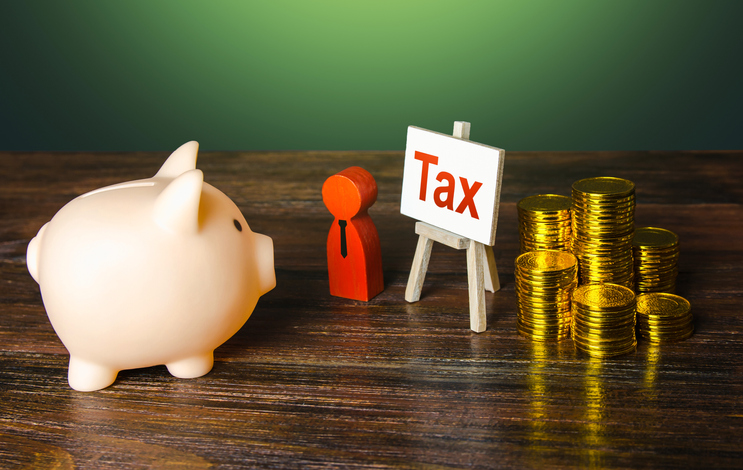Tax to GDP ratio at 15-yr high in FY23; could be even better in FY24
Gross tax revenue could be at the “highest ever” in the last 2 decades in FY24, says latest note by SBI Research

After the gross tax to GDP ratio at a 15-year high in FY23, it could touch its "highest ever" in the last 20 years in FY24, with the fiscal deficit likely to come down to 5.5%, SBI Research says in its latest note after the government's data released on Monday showed the country's direct tax to GDP ratio increased to 6.11% in FY23.
The Central Board of Direct Taxes' (CBDT) key statistics released on January 23 included direct tax collections, cost of collection, and ITRs filings in FY23. "The direct tax to GDP ratio has increased from 5.62% in FY14 to 6.11% in FY23. The cost of collection has decreased from 0.57% of the total collection in FY14 to 0.51% of the total collection in FY23," the CBDT data showed.
The tax to gross domestic product (GDP) ratio, according to ADB Bank’s data library, is total tax revenue as a percentage of GDP, which indicates the share of a country's output that is collected by the government through taxes. It can be regarded as one measure of the degree to which the government controls the economy's resources.
"We believe fiscal deficit in absolute terms could decline in FY24 but as a % of GDP it could be at 5.9% and likely to be set at 5.5% in FY25 Interim Budget," SBI Research's chief economist Soumya Kanti Ghosh writes.
As the final budget will be pronounced in July this year, the fiscal deficit could lower to the level of 5.3%-5.4%, depending on GDP numbers to be released in May 2024, writes Ghosh. "We believe in FY25, net market borrowing of the Centre will be around ₹11.7 lakh crore and with repayments of ₹3.6 lakh crore, gross borrowing is expected at ₹15.3 lakh crore. However, the Government will adjust in switches and this could adjust gross borrowings lower than ₹15 lakh crore," he says, adding that even the net issuance of T-Bills to the tune of ₹50,000 crore is expected.
Regarding the financing of the fiscal deficit, the report says the Centre will continue to rely on small saving schemes, with a hard push to SSY (Sukanya Samriddhi Yojana) and by roping in business correspondent (BC) channel partners by banks. It adds that in line with Prime Minister Narendra Modi's latest push to install solar rooftops in 1 crore households, the Centre could put out a road map to give a massive push to PMAY.
"The Government can unlock the Land Bank available with various Institutions across states and put them to constructive use for providing housing units to slum dwellers and marginalised segment of the population."
Recommended Stories
The CBDT data, meanwhile, also showed the total number of ITRs filed in FY23 stands at 7.78 crore, showing an increase of 104.91% as compared to the total number of ITRs of 3.80 crore filed in FY2014.
The data showed the net direct tax collections have increased by 160.52% from ₹6,38,596 crore in FY14 to ₹16,63,686 crore in FY23. The gross direct tax collections of ₹19,72,248 crore in FY23 registered an increase of over 173.31% compared to gross direct tax collections of ₹7,21,604 crore in FY2013-14.